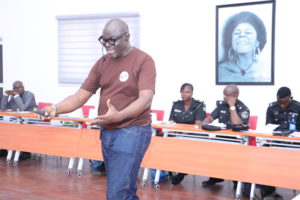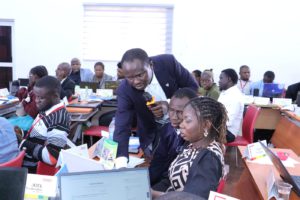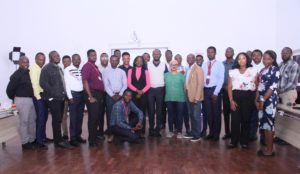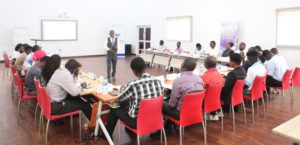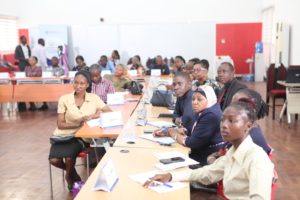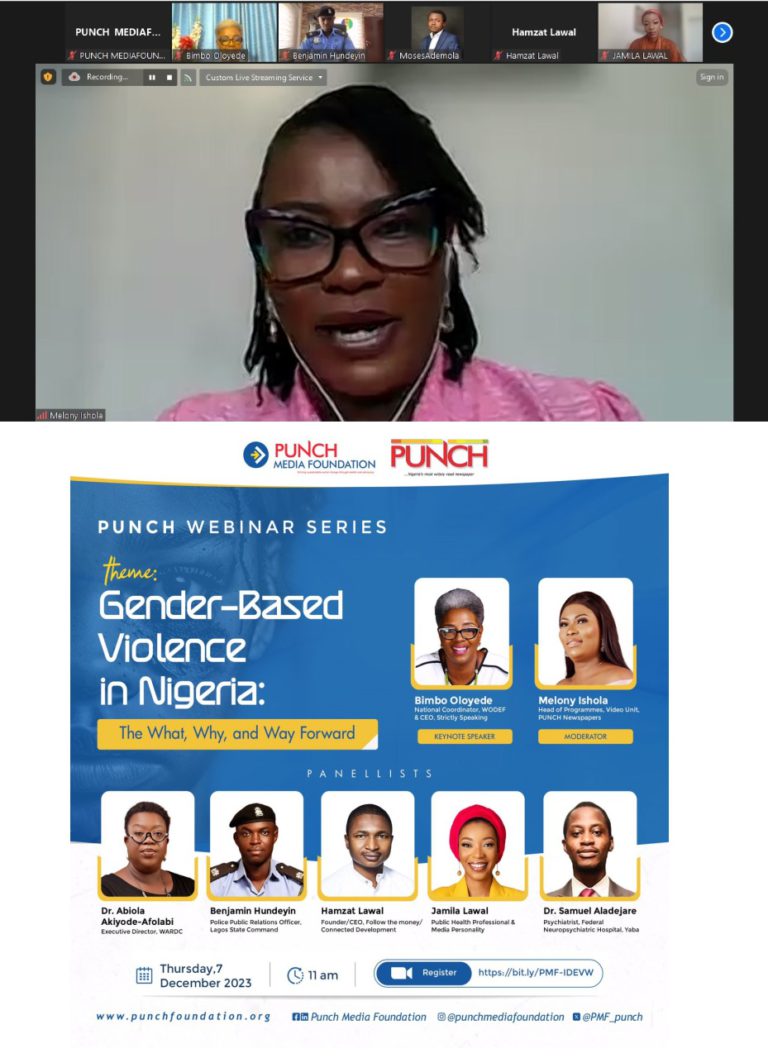
On Thursday, 7 December 2023, PUNCH Media Foundation hosted another PUNCH Webinar Series, a platform where critical issues of development concerns, as identified by the United Nations, are addressed. The online event, hosted on Zoom and streamed on the Facebook and X pages of PUNCH Newspapers, centred around the theme – Gender-Based Violence in Nigeria: The What, Why, and Way Forward – in commemoration of the 2023 International Day for the Elimination of Violence against Women and the 16 days of activism against gender-based violence.
To set the stage for the webinar, a Programme Officer at PUNCH Media Foundation, Moses Ademola, while introducing the event, noted that the programme was organised to raise awareness and the understanding of gender-based violence issues, empower survivors/victims, influence positive media reporting, enhance legal knowledge and access to justice, and challenge gender discriminatory norms, among others. The Head of Programmes at PUNCH Video, who moderated the event, Melony Ishola, referenced a recent case of gender-based violence that was reported by PUNCH to further give a background to the conversation.
The National Coordinator, WODEF and CEO, Strictly Speaking, Mrs Bimbo Oloyede, while delivering the keynote address, described gender-based violence as the serious violation of human rights which covers harmful acts that are perpetrated against a person’s will based on their gender. She pointed out that Nigeria has a challenge with gender-based violence, as studies show that one in every three women is exposed to it. She, therefore, maintained that GBV must be treated as a systemic cankerworm that requires firmer action to eliminate as it hinders real progress towards equality, development, and peace.
To put a human face to GBV in Nigeria, a Media Personality, Jamila Lawal, took participants through her experience. Jamila noted that as a northerner, it was difficult for her to seek help because of the culture of silence with GBV coupled with the high premium placed on marriage in her region. However, she noted that she had to opt out of her marriage due to emotional and psychological trauma that she went through, one that resulted into the physical abuse of her son, who was just a year old at the time. She also equally spoke about the importance of seeking specialised help as survivors of GBV.
Furthermore, the Founding Director of Women Advocates Research and Documentation Center, Dr Abiola Akiyode-Afolabi, affirmed that despite the existence of laws that prohibit gender-based violence in Nigeria, cases abound because of the culture of silence, community acquiescence, and congestion in courts, among other. Additionally, the Founder of Follow The Money and CEO of Connected Development (CODE), Hamzat Lawal, argued that the general decline in societal values has triggered the spate of GBV to the extent that residents of a community perpetrate the act within their community with impunity.
On the way forward, Oloyede noted that the media has a role to play as an agenda setter. She maintained that the burden of the media’s responsibility rests on female journalists, who are expected to use existing frameworks like The Convention on the Elimination of All Forms of Discrimination against Women (CEDAW) to write stories, do investigations, and drive balanced reportage. Also, she advised the establishment of gender desks in newsrooms and a collaborative work of the desk with the gender desks in police stations. A panelist at the event, the Public Relations Officer, Lagos State Police Command, Benjamin Hundeyin, shared a toll-free line for complaints on cases of GBV – 0800 033 3333 and assured of a timely response by the Lagos police command.
Similarly, Dr Akiyode-Afolabi recommended the establishment of more dedicated courts for handling GBV cases and urged the government, private sector, and communities to invest and stand against gender-based violence. A Psychiatrist at Federal Neuropsychiatric Hospital, Yaba, and the Regional Coordinator of Asido Foundation, Dr Samuel Aladejare, one of the panelists, urged that the government protect boys and girls from GBV as studies show that children who experience violations based on gender often end up becoming perpetrators. He also advised survivors or victims of GBV to seek specialised interventions like cognitive behavioural therapy.
The event allowed participants to engage with speakers through a Question-and-Answer session. It also provided an avenue to assess the level of awareness about gender-based violence in Nigeria through a poll, with results showing a high awareness level (98%) about gender-based violence in Nigeria. Moreover, 86 per cent of the participants noted that they got to know about GBV through the media – social media (65%), newspapers (62%), online news platforms (51%), television (51%), Radio (38%), and blogs (16%). The result of the poll accentuates the importance of using multiple platforms to create awareness about GBV issues.
The webinar concluded with a call for collective action, increased awareness, and collaboration across sectors to eliminate gender-based violence in Nigeria. While acknowledging the complexities involved, the event highlighted the potential for progress with sustained effort and commitment.



